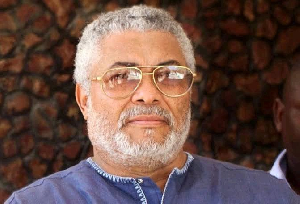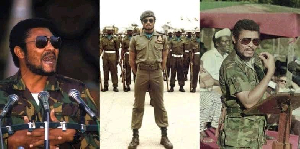
Jerry John Rawlings is undoubtedly one of Ghana's most iconic leaders, known for his bold and transformative leadership style. Born on June 22, 1947, to a Scottish father and Ghanaian mother, Rawlings rose to prominence through his military career, becoming a skilled pilot and eventually leading the country through two military coups .

Rawlings' first coup attempt in 1979 failed, but his passionate speeches broadcast nationwide garnered public support, and he was freed by sympathetic soldiers just days before his scheduled execution. He then formed the Armed Forces Revolutionary Council and led Ghana for 112 days, implementing sweeping reforms to eradicate corruption, including the execution of former heads of state and high-ranking military officials .
After handing power to President Hilla Limann in 1979, Rawlings remained unsatisfied with Limann's leadership and led another coup in 1981, marking his second rise to power. As head of state from 1981 to 1992, Rawlings oversaw significant economic reforms, transitioning Ghana to democratic rule in 1992 and winning two terms as a civilian president under the National Democratic Congress .
Rawlings' legacy is complex, with some viewing him as a champion of anti-corruption and national renewal, while others criticize his authoritarian methods. However, his lasting impact on Ghana's history is undeniable. He passed away on November 12, 2020, but his influence continues to shape Ghana's politics and society .
*Key Achievements:*
- _Led Ghana through two military coups and transitioned to democratic rule_
- _Implemented economic reforms and anti-corruption measures_
- _Served two terms as civilian president under the National Democratic Congress_
- _Championed national renewal and social justice_
*Challenges and Criticisms:*
- _Authoritarian leadership style_
- _Controversial executions of former heads of state and military officials_
- _Criticism of his economic policies and management_